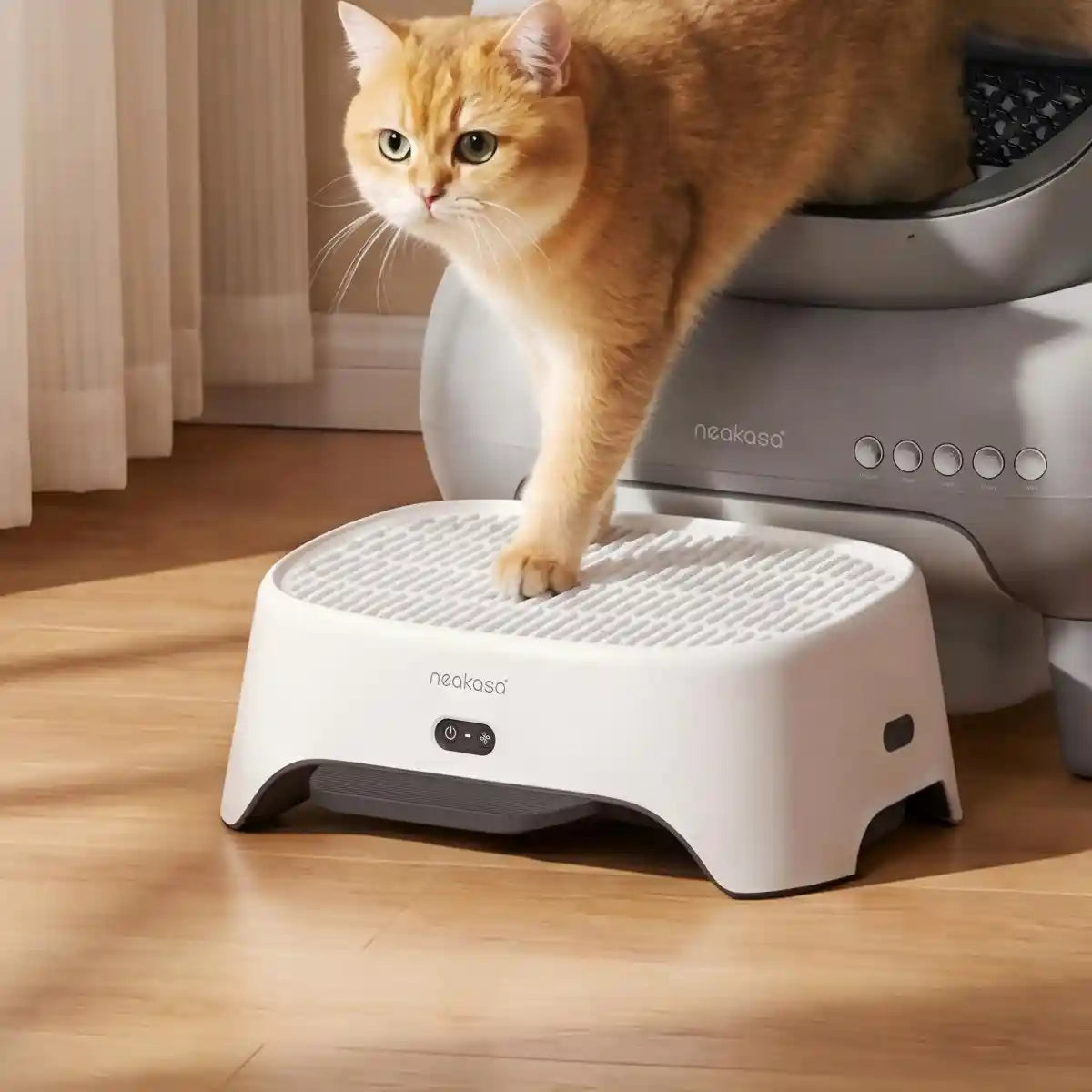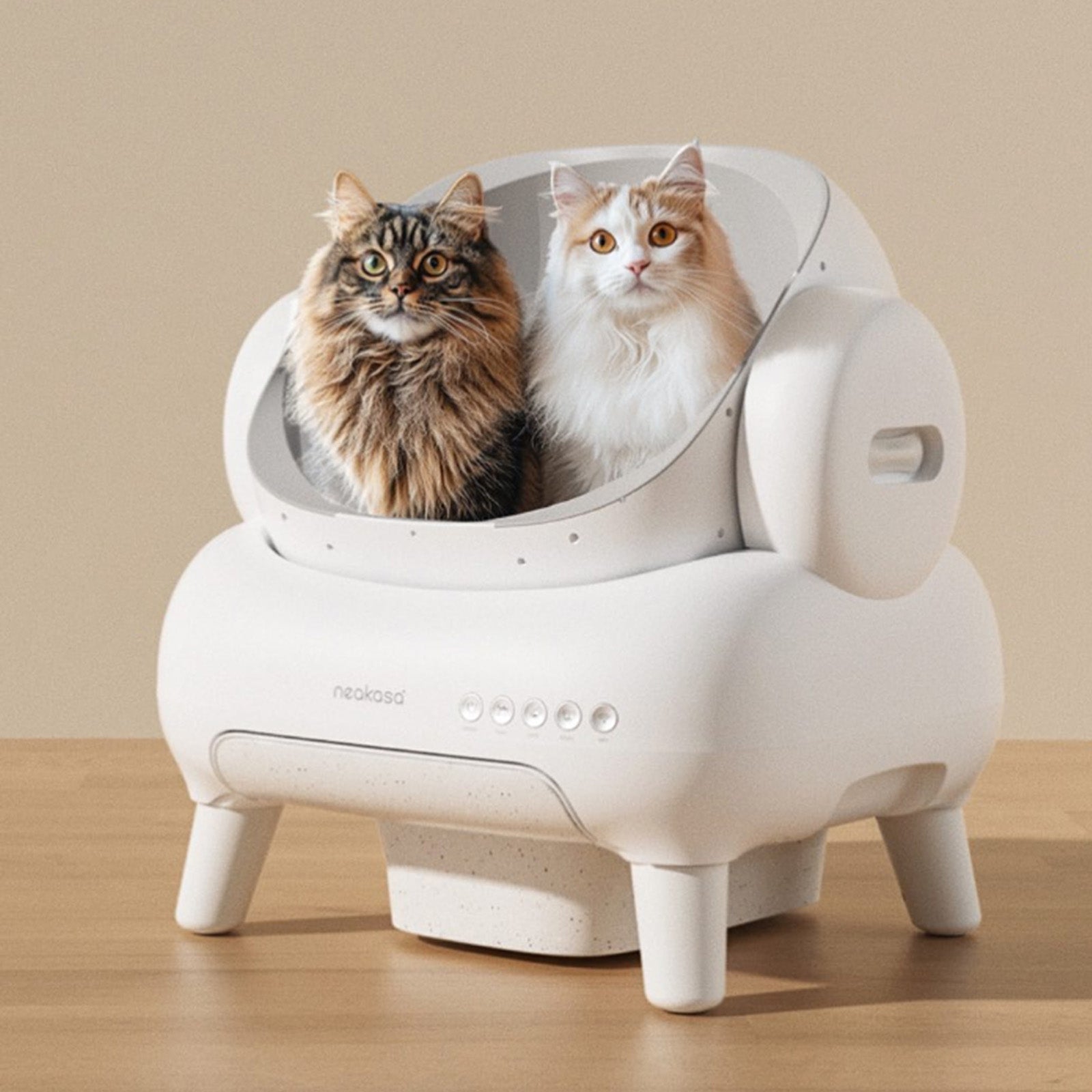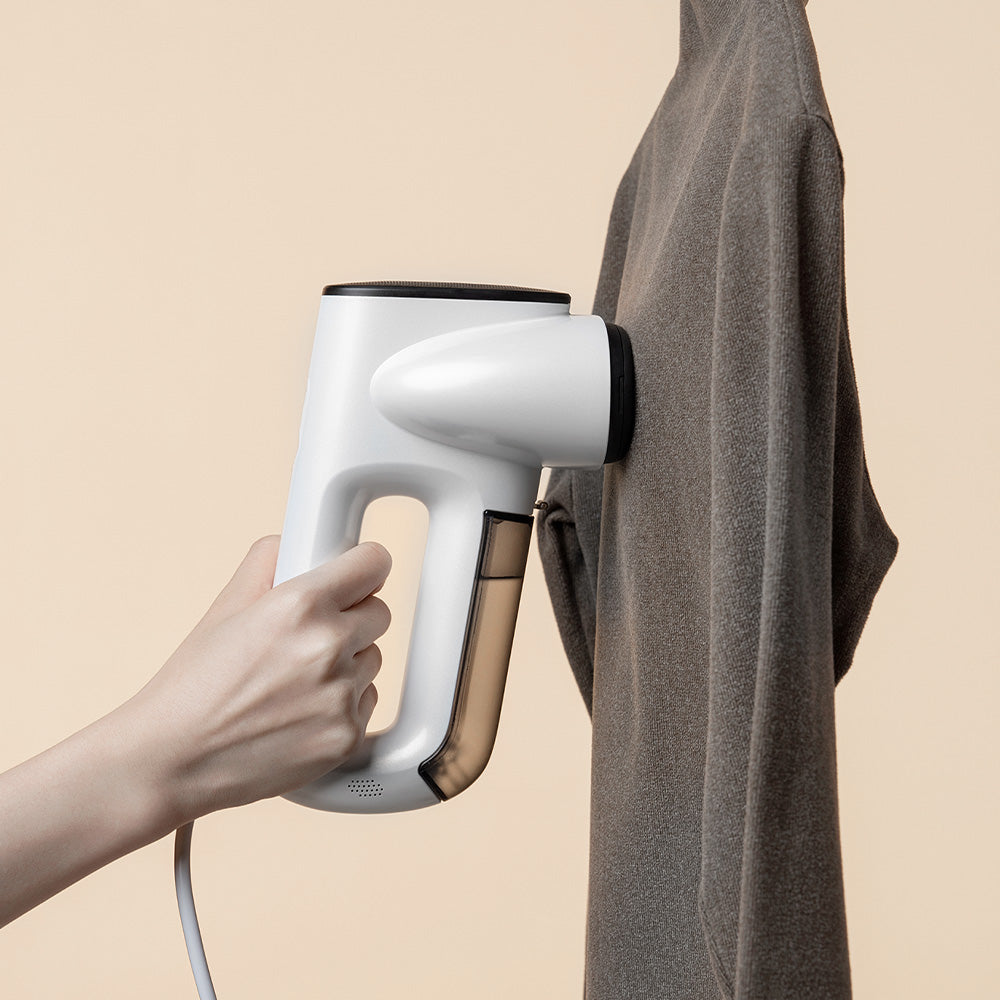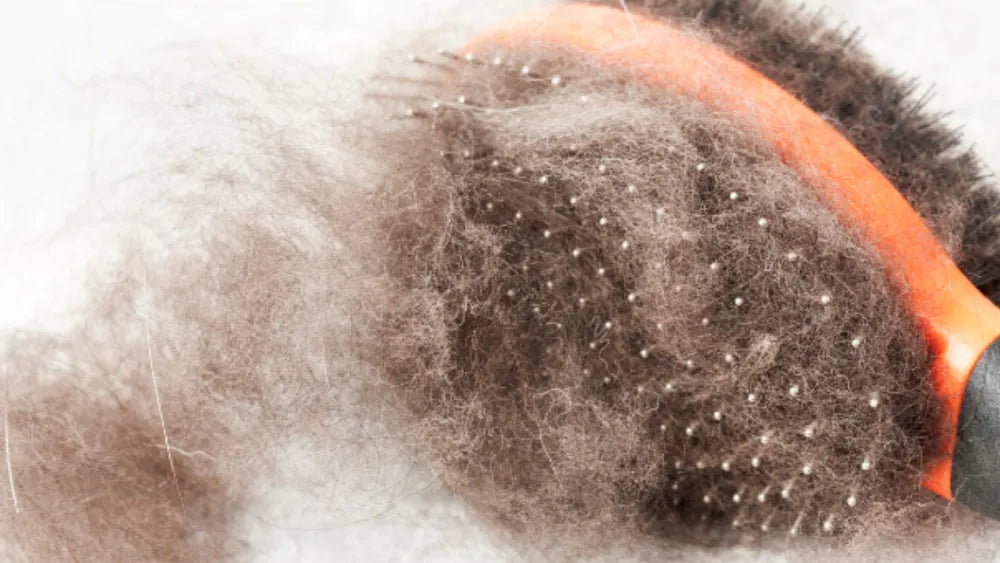Have you ever been caught off guard by your furry friend's sudden "achoo"? As a cat owner, you've probably witnessed your feline companion sneeze from time to time. While an occasional sneeze is usually nothing to fret about, persistent or excessive sneezing can be a sign that something's not quite right with your kitty.
In this article, we'll explore the various reasons why cat sneezing happens more than usual, how to identify potential problems, and what you can do to help your sneezing kitty feel better.

Table of Content
Why is My Cat Sneezing?
Just like humans, cats sneeze as a natural reflex to clear irritants from their nasal passages. It's their body's way of pushing out unwanted particles from their nose. This helps keep their respiratory system healthy.
Here’re the most common reasons why your feline friend might be sneezing more than usual. Understanding these causes can help you better care for your cat and determine when it's time to consult with a veterinarian.
1. Viral Infections
One of the most common culprits behind excessive cat sneezing is viral infections. These pesky invaders can wreak havoc on your cat's respiratory system, leading to a variety of symptoms, including sneezing. Some of the most common viral infections in cats include:
- Feline Herpesvirus (FHV)
- Feline Calicivirus (FCV)
- Feline Immunodeficiency Virus (FIV)
These viruses are highly contagious among cats and can spread quickly in multi-cat households or shelters. If your cat has recently been exposed to other felines or has a history of respiratory issues, a viral infection could be the root cause of their sneezing.
2. Bacterial Infections
While viral infections are more common, bacterial infections can also lead to sneezing in cats. These infections often occur as secondary complications following a viral infection when your cat's immune system is weakened. Some bacterial culprits include:
- Bordetella bronchiseptica
- Mycoplasma
- Chlamydophila felis
Bacterial infections can be more severe than viral ones and may require antibiotic treatment to resolve.
3. Fungal Infections
Although less common than viral or bacterial infections, fungal infections can also cause sneezing in cats. These infections typically affect cats with compromised immune systems or those living in warm, humid environments. Fungal infections like cryptococcosis can lead to chronic sneezing and nasal discharge.
4. Allergies
Just like humans, cats can develop allergies that trigger sneezing. While not as common as in dogs or people, feline allergies can cause a range of symptoms, including sneezing, itching, and skin irritation. Common allergens for cats include:
- Pollen
- Dust
- Mold spores
- Certain foods
- Cleaning products
If your cat keeps sneezing but seems fine otherwise, it could simply be a mild allergic reaction to something in their environment.
5. Foreign Objects
Cats are naturally curious, and sometimes their explorations lead to sneezing fits. Foreign objects like blades of grass or small toys can lodge in their nasal passages. This may result in your cat sneezing persistently or pawing at their nose. Some common culprits include:
- Blades of grass
- Small toys or pieces of plastic
- Plant material
- Insects
If your cat suddenly starts sneezing violently and pawing at their nose, it's possible they may have inhaled a foreign object.
6. Dental Disease
Believe it or not, dental problems can sometimes cause sneezing in cats. The roots of a cat's upper teeth are located very close to their nasal passages. If a tooth becomes infected or abscessed, it can create an opening between the mouth and nasal cavity, leading to sneezing and nasal discharge.
7. Tumors
In rare cases, tumors in the nasal cavity or sinuses can cause persistent sneezing in cats. While uncommon, these growths can obstruct the nasal passages and lead to chronic respiratory issues.
8. Cat Reverse Sneezing
While rare, a phenomenon called cat reverse sneezing can also occur. This is characterized by rapid inhalation, often mistaken for regular sneezing or even choking. Though typically harmless, it’s essential to monitor the frequency and consult a vet if it happens often.

Accompanying Symptoms of Cat Sneezing
When trying to determine why your cat keeps sneezing, it's essential to pay attention to any accompanying symptoms. These additional signs can provide valuable clues about the underlying issue and help you decide whether it's time to consult a veterinarian.
1. Nasal Discharge
One of the most common symptoms accompanying cat sneezing is nasal discharge. The type and color of the discharge can offer insights into the potential cause:
- Clear, watery discharge: Often associated with allergies or mild irritation
- Thick, yellow, or green discharge: May indicate a bacterial infection
- Blood-tinged discharge: Could suggest a more serious condition, such as a foreign object or tumor
2. Eye Discharge
Many respiratory infections in cats can affect both the nasal passages and the eyes. If you notice your cat's eyes are watery, crusty, or producing a thick discharge along with sneezing, it could be a sign of an upper respiratory infection.
3. Decreased Appetite
When cats don't feel well, they often lose interest in food. If your normally food-motivated kitty suddenly turns their nose up at mealtime while also sneezing, it could indicate a more severe issue that requires veterinary attention.
4. Coughing
While sneezing and coughing are different reflexes, they often occur together when a cat is dealing with a respiratory problem. If you notice your cat coughing in addition to sneezing, it's essential to monitor the frequency and severity of both symptoms.
When to Seek Veterinary Care
While occasional sneezing is usually nothing to worry about, there are certain situations where you should seek veterinary care for your sneezing cat:
1. Persistent Sneezing
If your cat keeps sneezing for more than a few days or seems to be getting worse, it's time to consult with your vet.
2. Severe Accompanying Symptoms
When sneezing is accompanied by severe symptoms like difficulty breathing, loss of appetite, or lethargy, immediate veterinary attention is necessary.
3. Loss of Appetite
If your cat stops eating or drinking due to their sneezing or associated discomfort, it's crucial to seek veterinary care promptly.
4. Difficulty Breathing
Any signs of labored breathing, wheezing, or open-mouth breathing along with sneezing warrant immediate veterinary attention.
Home Care and Prevention For Cat Sneezing
While some causes of cat sneezing require professional medical attention, there are several steps you can take at home to help prevent excessive sneezing and promote your cat's overall respiratory health:
1. Maintaining a Clean Environment
Regular cleaning of your home, including vacuuming and dusting, can help reduce environmental irritants that may trigger sneezing in your cat.
2. Reducing Allergens
If you suspect your cat has allergies, try to identify and remove potential allergens from their environment. This might include using hypoallergenic litter, avoiding strong perfumes or air fresheners, and keeping windows closed during high pollen days.
3. Regular Check-ups
Scheduling regular veterinary check-ups can help catch any potential health issues early, including those that might lead to sneezing.
4. Proper Diet
Ensuring your cat receives a balanced, nutritious diet can help boost their immune system and make them more resilient to infections that cause sneezing.
Seasonal Changes and Cat Sneezing
The changing seasons can sometimes impact your cat's respiratory health and lead to increased sneezing.
1. Spring Pollen
As flowers bloom and pollen fills the air in spring, some cats may experience increased sneezing due to allergies.
2. Winter Dry Air
The dry air associated with indoor heating during winter months can irritate your cat's nasal passages, potentially leading to more frequent sneezing.
Breed Susceptibility to Sneezing
Some cat breeds may be more prone to respiratory issues and sneezing due to their unique physical characteristics:
1. Brachycephalic Breeds
Flat-faced breeds like Persians and Himalayans are more susceptible to respiratory problems due to their shortened nasal passages.
2. Long-haired Breeds
Cats with long fur, such as Maine Coons or Norwegian Forest Cats, may be more prone to allergies that can cause sneezing.
Long-term Management and Care Strategies
For cats with chronic sneezing issues, long-term management strategies may be necessary:
1. Regular Veterinary Check-ups
Frequent check-ups can help monitor your cat's condition and adjust treatment as needed.
2. Ongoing Medication Management
Some cats may require long-term medication to manage chronic respiratory conditions or allergies.
3. Environmental Adjustments
Making permanent changes to your home environment, such as using air purifiers or eliminating certain allergens, can help reduce sneezing in sensitive cats.
Diet and Its Relation to Sneezing
Your cat's diet can play a role in their overall health and susceptibility to respiratory issues:
1. Immune-boosting Foods
Incorporating foods rich in antioxidants and omega-3 fatty acids can help support your cat's immune system and potentially reduce the frequency of sneezing.
2. Allergen-free Diet
For cats with food allergies that contribute to sneezing, your vet may recommend a hypoallergenic or limited-ingredient diet.
Conclusion
Understanding why your cat is sneezing and knowing when to seek veterinary care is crucial for maintaining your feline friend's health and happiness. While occasional sneezes are usually harmless, persistent or severe sneezing accompanied by other symptoms should always be evaluated by a professional.
By maintaining a clean environment, using a self-cleaning cat litter box like Neakasa M1, staying vigilant for signs of illness, and providing your cat with proper nutrition and care, you can help minimize excessive sneezing and support their overall respiratory health. Remember, when in doubt, it's always best to consult with your veterinarian to ensure your cat receives the best possible care.
So, the next time you hear your cat let out a tiny sneeze, you'll be armed with the knowledge to determine whether it's just a cute moment or a sign that your furry friend might need some extra TLC. Here's to happy, healthy cats and the occasional endearing sneeze!








Leave a comment
This site is protected by hCaptcha and the hCaptcha Privacy Policy and Terms of Service apply.